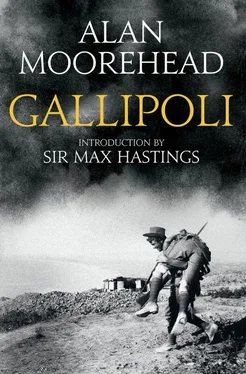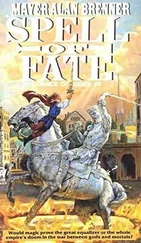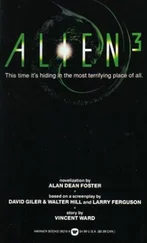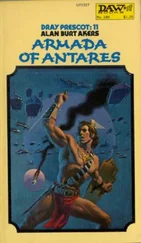It is doubtful however whether the soldiers at Y beach would have acted with very much initiative even if they had known these things, for their operation had been planned in circumstances of the utmost confusion. Two colonels had been landed with the force, and each thought he was in command. No one had bothered to tell Colonel Koe that he was in fact subordinate to Colonel Matthews, and in any case neither of the two men had been given any dear instructions. Both seem to have imagined that, far from exploiting the enemy’s rear, his mission was to stay where he was until the British who had landed in the south came up and made contact, and so all would march forward safely together. Messages were sent off from Y beach to the Euryalus through the day asking for information and instructions, but there was no reply from Hunter-Weston, and neither of the two colonels felt that he could take things into his own hands.
Quite early in the day Hamilton came by in the Queen Elizabeth and saw the peaceful bivouac on Y beach. Roger Keyes begged him to put more troops in there at once: the Royal Naval Division then making a demonstration at Bulair (the demonstration that was deceiving Liman von Sanders), could, he said, be brought down and landed before sunset. But Hamilton felt that he could not give the order without Hunter-Weston’s consent. He sent off a signal to him: ‘Would you like to get some more men ashore on Y beach? If so, trawlers are available.’ To this there was no answer, and the message had to be repeated an hour or two later before Hunter-Weston finally replied: ‘Admiral Wemyss and principal transport officer state that to interfere with present arrangements and try and land men at Y beach would delay disembarkation.’
Thus by midday an extraordinary situation had come about. The main assault of the British in the centre was being held up and was in danger of failing altogether, while two subsidiary forces which were perfectly capable of destroying the whole Turkish garrison of 2,000 men sat by in idleness on either flank. Under the existing system of command there was no immediate way out of this impasse. Hamilton was beginning to understand the position, but he refused to intervene. Hunter-Weston might have put things to rights, but he failed to do so because he did not comprehend what was happening. All his three brigade commanders at Cape Helles had by now become casualties, and two of the colonels who had replaced them had been instantly killed. Therefore there was no senior officer on shore, no tactical headquarters which could rally the men and keep the corps commander informed. It was left to the junior officers and the men themselves to make what shift they could out of whatever resources of courage and discipline remained to them in the bewildering chaos of the battle.
This tragic situation continued throughout the day. The naval gunners yearned to intervene and kept asking the soldiers for targets. But only the most confusing signals came out from the shore, and so for long periods at a stretch the ships were forced to stand helplessly by in the hateful security of the sea. Often the ships were so close that the sailors could see the Turks running about on the shore. Then they fired with a will. But they could not always be certain that they were not firing on their own men. The captains kept asking one another on the wireless, ‘Are any of our troops dressed in blue? Have we landed any cavalry?’
At Sedd-el-Bahr another attempt was made to get the remaining soldiers off the River Clyde at 4 p.m., and this time a few did manage to get to the beach. They were cheered on by the little group who had huddled under the protection of the bank all day. But then the Turkish rifle fire made things impossible again. At 5.30 p.m. the village burst into flames under a new bombardment from the sea, thick smoke rolled over the battlefield and a red glare filled the evening sky. But it was clear that nothing more could be done until night fell. At Tekke Burnu things improved somewhat as more troops came ashore, but there was still no help from either flank: at Eski Hissarlik the British commander still judged himself too weak to make the two-mile march around to Sedd-el-Bahr, and in fact he was expressly forbidden to attempt it. And at Y beach, where the troops had been left undisturbed for eleven hours, retribution had at last begun: the Turks fell upon the bridgehead from the north in the evening light, and finding the British had not bothered to entrench themselves properly, continued the attack all night.
The rest of the Y beach story is brief and bitter, and can be conveniently told here. By dawn the following day there were 700 casualties, and many of the men began to straggle down the cliffs to the shore. Colonel Koe was now dead and in the absence of any clear authority a panic began. Frantic messages asking for boats were sent out to the Navy, and the Navy, believing that an evacuation had been ordered, began to take the men off. Colonel Matthews with the rest of his force on the cliff above knew nothing of all this. He fought on. At 7 a.m. he drove off a heavy Turkish attack with the bayonet, and in the lull that followed he made a tour of his position. He then discovered for the first time that a whole section of his line had been abandoned. His position was now so insecure that he felt he had no choice but to acquiesce in the retirement, and a general evacuation began. At this very moment the Turks, on their side, decided that they had been beaten, and they too withdrew; and so the British came off Y beach in the same way as they had arrived, without another casualty, without the sound of a shot being fired. In the afternoon of April 26 Roger Keyes’s brother, Lieutenant-Commander Adrian Keyes, went ashore in a boat to look for wounded men who might have been left behind. He climbed the cliff and walked about for an hour among the abandoned British equipment. No one answered his calls. A perfect silence had settled on the air and the battlefield was empty.
All this, of course, was unknown and unguessed at on the other parts of the Cape Helles front as night at last began to fall on April 25. The night was the friend of the attackers. Little by little the Turkish fire began to slacken, and the aim of their gunners became uncertain. At Sedd-el-Bahr the men under the bank on the beach were able to put up their heads at last. Tentatively at first, and then with growing confidence, they crept out of their hiding-places to clear away the dead from the lighters and gather up the wounded from the beach. As the night advanced all the remaining men on the River Clyde were brought off without a single casualty. Everywhere along the line a furtive movement began under the cover of the darkness. Men crawled through the scrub to safer positions, and dug themselves entrenchments in the rocky ground. Others went forward to the barbed wire which had held them up all day and cut pathways through it. From out at sea the naval guns opened up again, and boats filled with fresh troops and stores of food and water began to reach the shore. Midshipmen and even the captains of ships took a hand in carrying boxes of ammunition up the cliffs.
By midnight the British no doubt might have gone forward again and perhaps overwhelmed the Turks in the tip of the peninsula. But there was still no senior officer ashore who was able to give them a lead. It was feared that an enemy counter-attack might start at any moment, and no one as yet had the slightest notion that they now outnumbered the enemy in Cape Helles by six to one. A dullness, a kind of mental paralysis, had followed the shock of the violent battles of the day, the unknown still loomed before them in the darkness.
The Turks in fact were in no position even to consider a counter-attack. Of their original 2,000 men who opposed the five Cape Helles landings half were casualties. A Turkish message captured on the following day gives an idea of their condition in the frontline trenches. ‘Captain,’ it runs, ‘you must either send up reinforcements and drive the enemy into the sea or let us evacuate this place because it is absolutely certain that they will land more troops tonight. Send the doctors to carry off my wounded. Alas alas, Captain, for God’s sake send me reinforcements because hundreds of soldiers are landing. Hurry. What on earth will happen, Captain?’
Читать дальше












